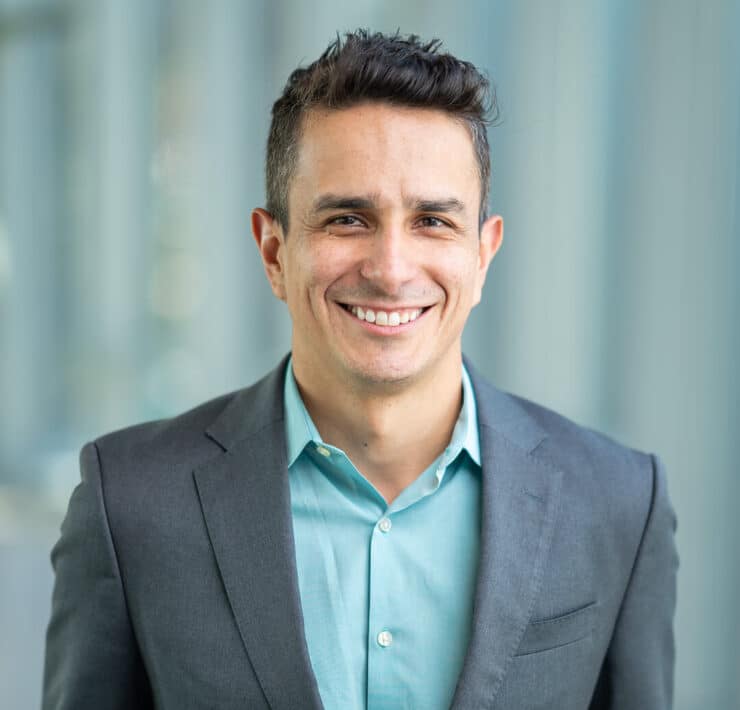
|
Getting your Trinity Audio player ready...
|
Long before Roland Gonzalez became the chief operating officer (COO) of Church’s Texas Chicken, his life was all about competitive sports. He played Division 1 baseball—even led the country in stolen bases during his senior year—and briefly played in the minor leagues.
That competitive spirit, Gonzalez says, never dimmed once he left sports. He found the same fire in the food and beverage industry, “which was just as intense and thrilling,” he says. “Operations appealed to me because it’s at the heart of the action, where I could make real, tangible changes.”
The Cuban American, who was born and raised in Miami, became a results-driven leader and earned his operations stripes at Restaurant Brands International and Virtual Dining Concepts. Gonzalez brought his then-twelve years of experience in franchising, operations, P&L management, global business strategies, and process improvement to Church’s Texas Chicken in 2023.
He notes that his roll-up-the-sleeves work ethic and entrepreneurial energy can be traced back to Gonzalez’s grandparents, who left everything behind in Cuba to establish a new life in America. He watched his father start his own business, much like his grandfather did. “The lessons and first-hand examples of perseverance and entrepreneurial mindset have really inspired me to believe I can I accomplish almost anything by dreaming big and working hard,” Gonzalez says. Not surprisingly, he’s right at home working for a legendary brand with a uniquely bold spirit of its own.
In an interview with Hispanic Executive, Gonzalez shares his operational insights of the quick-service restaurant (QSR) industry, his lessons learned from his first year at Church’s Texas Chicken, and advice for aspiring COOs.
How have you seen the QSR industry evolve throughout your thirteen years in the space, particularly when it comes to technology and customer expectations?
Over the course of my career, I’ve witnessed a significant transformation, especially in how technology intersects with guest expectations. The rise of digital channels—including mobile app ordering, delivery services, and order-ahead capabilities—has redefined convenience, placing it at the forefront of consumer demands. Today’s guests expect not just speed and value but also the flexibility to engage with brands on their terms, through the platforms and devices they prefer.
Even with these technological advancements, the core expectations of customers have remained consistent. They continue to seek quality food, competitive pricing, and a welcoming dining experience. The essence of the QSR industry lies in balancing these timeless demands with the evolving landscape of digital convenience.
What strategies have you implemented to ensure operational excellence across multiple locations?
With respect to operational excellence, I firmly believe in the principle that effective measurement is the cornerstone of improvement. This mindset has driven me to implement data driven measurement systems that capture insights from both our teams and guests. Such systems provide a holistic view of each restaurant’s performance, crucial for informed decision-making as we scale.
Accountability is the second pillar. It’s essential that excellence is recognized and rewarded, while areas needing improvement receive targeted support, approached with both fairness and resolve. Moreover, I personally emphasize the value of on-site visits. There’s irreplaceable insight gained from being physically present in our restaurants. This hands-on approach ensures we’re not only maintaining but also elevating our standards.
Lastly, the backbone of our operational success lies in our people, especially our restaurant managers. Training is an important investment in that endeavor. Through these strategies, we’ve cultivated a culture of continuous improvement, resilience, and commitment to excellence.
The past few years especially have been challenging within hospitality. How have you seen other restaurants adapt in response to the COVID-19 pandemic? Are there any examples of restaurants not adapting?
One great thing about the QSR industry is that it is resilient, and how we came through the pandemic is a perfect illustration. As much as things change, people still need to eat and to be able to provide this in a primarily drive-through format is advantageous. COVID-19 underscored the importance of flexibility and innovation in the hospitality industry. Restaurants that embraced change and sought creative solutions to meet customer needs not only survived but, in many cases, thrived despite the adversity. The lessons learned during this period have likely reshaped the industry’s approach to service delivery, emphasizing the need for agility and the ability to quickly respond to changing circumstances.
How have you navigated supply chain disruptions within the QSR sector to ensure consistent product availability and quality?
There is no question that everything in the industry was impacted one way or another due to the supply chain challenges over the last few years. The foundation of our strategy has been to cultivate and maintain robust relationships with our suppliers. These strong connections have been invaluable, enabling us to stay ahead of potential issues and work collaboratively towards solutions when supply challenges arise.
Secondly, transparent and continuous communication with our franchisees has been crucial. Keeping an open line of dialogue has helped us to manage expectations, share updates on supply situations in real time, and collectively brainstorm on immediate actions to mitigate any potential negative impacts on our operations.
Lastly, flexibility has been key. We’ve had to think outside the box, exploring and leveraging alternative sources for our ingredients and supplies without ever losing sight of our commitment to quality.
You lead various global business initiatives at Church’s Texas Chicken. How do you adapt your global operations strategy to accommodate local market nuances while ensuring alignment with the company’s overarching goals?
Great question. At Church’s Texas Chicken, we have more than 1,500 restaurants across twenty-three countries and growing. The systems and tools that are developed and rolled out are with a global mindset. It’s important to ensure that critical items such as food safety and brand standards are never compromised. That said, it’s equally important to allow room for such things as exciting international innovative products and be sensitive to local demands.
Transitioning to a leadership in a new company comes with its challenges. Can you share some of your own lessons learned from this first year at Church’s Texas Chicken?
I’ve just celebrated my first-year anniversary, and I couldn’t be prouder of what we have accomplished as a team. It’s really important to know what you are getting into before you join a new company so make sure you ask lots of questions. I also recommend meeting as many people as you can before you start.
The biggest takeaways for me in my first year were:
- Church’s Texas Chicken has been going for more than seventy years because the chicken is amazing! In fact, we like to say it’s legendary.
- Going back to your roots and what has made you successful can be very powerful.
- We had a historic year primarily because of our people—passionate and dedicated team members, restaurant support center, and franchise community.
What opportunities are you most excited for at Church’s Texas Chicken?
I am most excited about the innovative menu items that will be rolled out soon. Not only because they are great products, but also because they are actually going to make our kitchens less complex. This combination—where marketing reduces, rather than adds to complexity—is rare in our industry, and we are confident that this simplification will keep our existing franchisees increasingly happy, as well make Church’s Texas Chicken an attractive brand for new franchisees. Simply put: if there is a better way, we are going to identify and implement the better way.
Looking ahead to 2024 and beyond, I’m thrilled to build upon the considerable momentum we amassed as a brand in 2023. With the investments we continue to make in our people, technology, operations, and the development of our new prototype, we’re already on track for another tremendous year of growth. Our approach has been to be laser-focused on absolutely everything that’s in our control, regardless of the challenges the external environment presents. Church’s has always been a bold brand and we are planting big bold stakes in the ground toward our future. It’s an exciting time for sure.
What advice would you give to aspiring COOs and operations leaders in the QSR industry?
If you are serious about being a COO of any brand, you must roll up your sleeves and spend time in restaurants. Truly understand what different team members face every day—it will help you make better decisions, and you won’t regret it. Also, the COO interacts with all of the key areas of the company, so reach out and establish cross functional relationships early and often. This will help you gain support from these stakeholders, allow you to add value to each of their areas, and make you a better leader!







